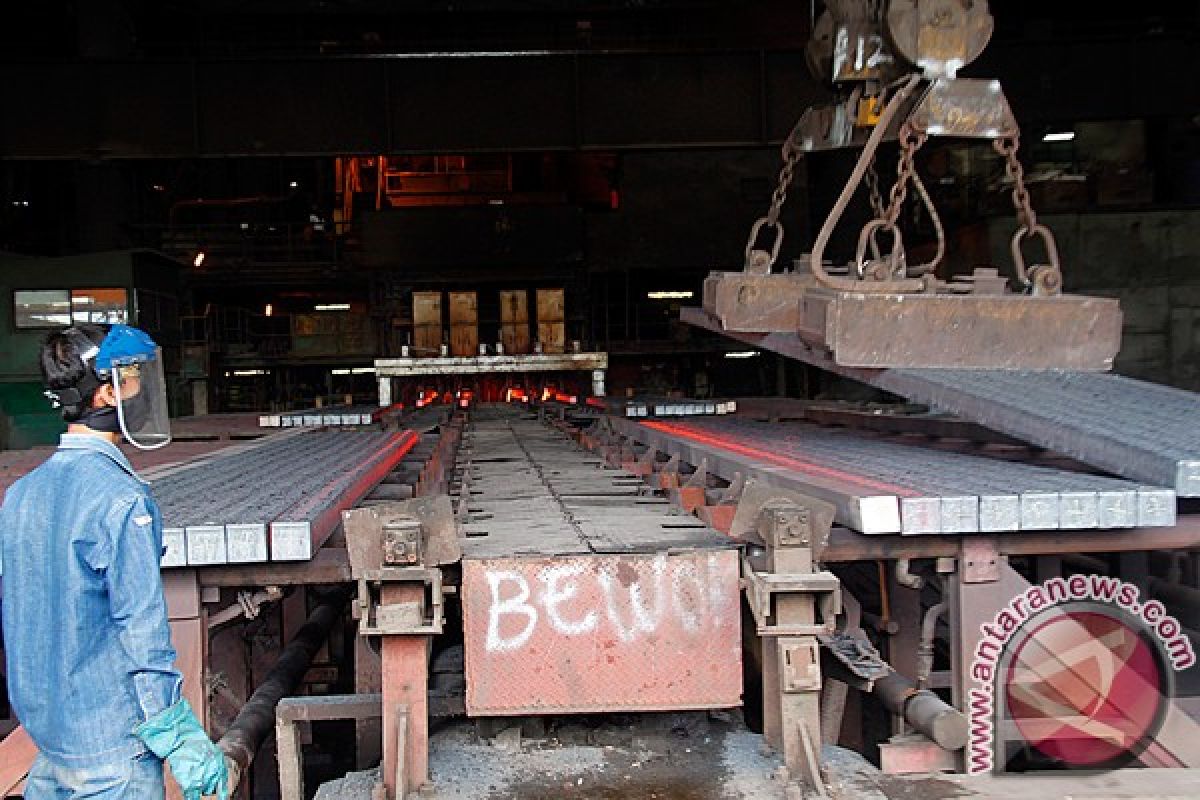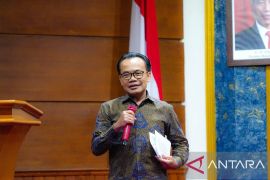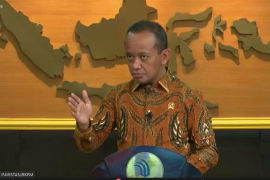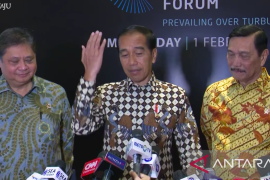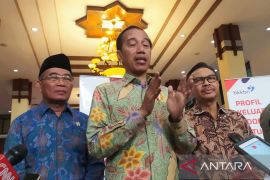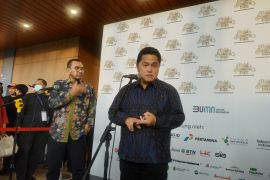The Indonesian government can make the most of this proverb to open other trade routes amid the issue of recession in Europe.
The European Union's statistics agency Eurostat stated that Europe has officially entered technical recession during the first quarter of 2023 after the economy contracted by 0.1 percent within two quarters in a row.
This condition was caused by a spike in food and energy prices triggered by the Russia and Ukraine war. Thus, how does the data affect the performance of trade?
According to the Trade Ministry's record, Indonesia's total export to Europe in 2022 had reached US$21.5 billion, or 19 percent, and the import stood at US$11.6 billion. Indonesia also recorded a trade surplus of US$9.8 billion.
Indonesia's main export to the European Union comprises vegetable oils, US$3.1 billion; footwear, US$2 billion; chemical products, US$1.9 billion; electrical machinery/equipment, US$1.2 billion; and metal ore/crust/ash, US$1 billion.
Meanwhile, Indonesia's main import from the European Union comprises machinery/aircraft, US$2.8 billion; electrical machines/equipment, US$1 billion; optical devices, US$688 million; vehicles and spare parts, US$623 million; and pharmaceutical products, US$591 million.
Economic recession in Europe will certainly affect all trade partners, including Indonesia. This is especially true if economic pressure in Europe continues and records a negative growth. Europe's consumption will naturally continue to decline and will affect export performance.
The other impact involves investment. The investment trend is estimated to slow down for just a bit. European Union countries will look out for themselves first before conducting investment.
Meanwhile, from the interest rate standpoint, the European central bank has insisted on raising the interest rate to prevent recession. Increasing the interest rate in Indonesia will be a hurdle for the expansion of several enterprises.
Despite this, researcher from the University of Indonesia's Institute for Economics and Social Research (LPEM) Dzulfian Syafrian stated that in general, Indonesia will survive against recession in Europe.
This is because the country's economy is not too integrated with the European Union, so whatever happens there, it will not have much impact on Indonesia directly.
"This recession can affect Indonesia indirectly if other major countries, such as China and the US, are also severely affected by this recession," he told ANTARA.
"However, the recession that occurs in the European Union is regional in nature. It only happens to them due to the prolonged effect of the Russia-Ukraine war," he noted.
The Russia-Ukraine war is deemed to have restricted the supply of various goods, raised the prices of energy and commodities, and increased the inflation and interest rate, thereby leading to economic stagnation.
Inflation and recession can continue if these structural problems are not handled throughout winter.
Anticipatory actions
Before this can truly affect the economy, the Indonesian government needs to prepare various anticipatory efforts to prevent the massive impacts that this recession has on the trade performance.
Trade Ministry's Director General of International Trade Negotiation Djatmiko Bris Witjaksono stated that to this day, the recession has had no significant impacts on Indonesian trade.
However, it cannot be denied that a contraction was recorded for several products during the January-April 2023 period, such as vegetable oil derivative products, especially fatty acid products, steel, sports shoes, rubber, and tin.
However, this has more to do with trade access restriction, such as implementation of the trade barrier by the European Union, and not just due to economic decline in Europe.
As an anticipatory effort against the decline in export performance to Europe, Indonesia encouraged entrepreneurs to be able to diversify their export destination market to more promising places.
Indonesia currently has nine concluded bilateral agreements, namely the agreement with Japan, Pakistan, Palestine, Chile, Australia, EFTA countries, Mozambique, Korea, and the United Arab Emirates, Witjaksono stated.
Indonesian entrepreneurs can also utilize the ASEAN free market and Regional Comprehensive Economic Partnership (RCEP) to open broader access.
The Indonesian government itself continues to expedite efforts to open the market to Europe through the Indonesia-European Union (IEU-CEPA) negotiation.
The negotiation is expected to be able to open broader market access, as it will reduce export costs in terms of tariffs and non-tariffs.
Through this, Indonesian products will have unique selling points that are lacking in other countries not having an agreement with the European Union.
As frequently stated by Trade Minister Zulkifli Hasan, the government continues to open new trade routes, such as South Asia, Middle East, to Africa, as an effort to ensure that Indonesia does not rely on the Europe market alone.
Economic observer Bhima Yudhistira, who is a graduate from the University of Gadjah Mada, opined that Indonesia can utilize ambassadors in various countries and trade attachés to improve trade diplomacy.
Several countries outside Europe, such as India and Pakistan, have vast potential for trade cooperation. The trade attachés are expected to be able to read the map and new trade opportunities.
If Germany is sick, exports can be done to other countries, such as India and Pakistan, which are still growing. If Indonesia can conduct this transition quickly, it can maintain export performance until the European market can recover.
Deciphering opportunities
There is always an opportunity to be seized from the European recession. The price hike for food and several primary necessities can, in fact, be utilized by entrepreneurs or exporters.
The demand for primary products will not stop despite the fact that the price continues to rise. This has been proven during the COVID-19 pandemic. Consumers finally transition to cheaper primary products.
This can, in fact, be an opportunity. Suppliers from all countries will be forced to adjust with the decline in demand and negative economic growth.
The first supplier that can adapt to the decline in purchasing power has the potential to maintain trade with European buyers, and when the circumstances recover, strong business foundation has already been formed.
In relation to this, suppliers must also be able to ensure stable supply stock volume while adjusting their profit margin that does not put too much pressure on buyers and importers since they also have to adjust the cash flow with the retail market pressure.
In addition to preparing an adaptive resilient scenario, such as adjusting product specifications and profit margin with existing buyers, entrepreneurs should prepare an exit strategy.
This can be achieved through transaction terms and condition adjustment, buying and selling contracts, and the search for alternative market.
However, it should be noted that this opportunity does not belong to Indonesia alone. The competition will be fiercer, especially with Vietnam and Thailand.
Indonesia needs to always be ready and see the economic growth projection carefully despite currently showing a positive trend.
Related news: Indonesia mulls diverting palm oil exports to Africa over EUDR
Related news: Indonesia's lightwood potential for export to Europe
Editor: Rahmad Nasution
Copyright © ANTARA 2023
